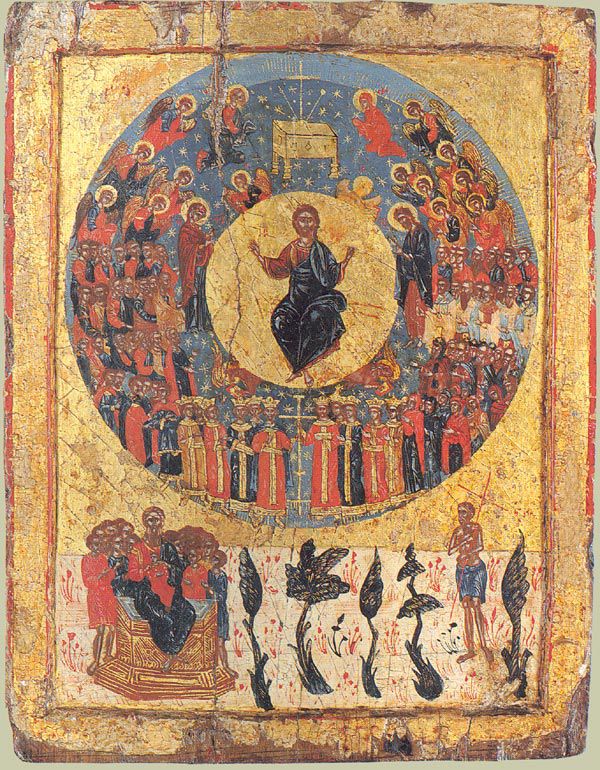Jesus exaggerates in the Gospel when he claims not to know the day or the hour when he will come again. He occasionally makes such overstatements to drive home a point we might otherwise miss (see Matthew 5:34; 23:9; Luke 14:26).
His point here is that the exact “hour” is not important. What is crucial is that we not postpone our repentance, that we be ready for him — spiritually and morally — when he comes. For he will surely come, he tells us — like a thief in the night, like the flood in the time of Noah.
In the epistle, Paul too compares the present age to a time of advancing darkness and night.
Though we sit in the darkness, overshadowed by death, we have seen arise the great light of our Lord who has come into our midst (see Matthew 4:16; John 1:9; 8:12). He is the true light, the life of the world. And his light continues to shine in his Church, the new Jerusalem promised by Isaiah in the first reading.
In the Church, all nations stream to the God of Jacob, to worship and seek wisdom in the House of David. From the Church goes forth his word of instruction, the light of the Lord — that all might walk in his paths toward that eternal day when night will be no more (see Revelation 22:5).
By our baptism we have been made children of the light and day (see Ephesians 5:8; 1 Thessalonians 5:5-7). It is time we start living like it — throwing off the fruitless works of darkness, the desires of the flesh and walking by the light of his grace.
The hour is late as we begin a new Advent. Let us begin again in this Eucharist.
As we sing in the psalm, let us go rejoicing to the House of the Lord. Let us give thanks to his name, keeping watch for his coming, knowing that our salvation is nearer now than when we first believed.
Jesus exaggerates in the Gospel when he claims not to know the day or the hour when he will come again. He occasionally makes such overstatements to drive home a point we might otherwise miss (see Matthew 5:34; 23:9; Luke 14:26).
His point here is that the exact “hour” is not important. What is crucial is that we not postpone our repentance, that we be ready for him — spiritually and morally — when he comes. For he will surely come, he tells us — like a thief in the night, like the flood in the time of Noah.
In the epistle, Paul too compares the present age to a time of advancing darkness and night.
Though we sit in the darkness, overshadowed by death, we have seen arise the great light of our Lord who has come into our midst (see Matthew 4:16; John 1:9; 8:12). He is the true light, the life of the world. And his light continues to shine in his Church, the new Jerusalem promised by Isaiah in the first reading.
In the Church, all nations stream to the God of Jacob, to worship and seek wisdom in the House of David. From the Church goes forth his word of instruction, the light of the Lord — that all might walk in his paths toward that eternal day when night will be no more (see Revelation 22:5).
By our baptism we have been made children of the light and day (see Ephesians 5:8; 1 Thessalonians 5:5-7). It is time we start living like it — throwing off the fruitless works of darkness, the desires of the flesh and walking by the light of his grace.
The hour is late as we begin a new Advent. Let us begin again in this Eucharist.
As we sing in the psalm, let us go rejoicing to the House of the Lord. Let us give thanks to his name, keeping watch for his coming, knowing that our salvation is nearer now than when we first believed.
Scott Hahn is founder of the St. Paul Center for Biblical Theology, stpaulcenter.com.

